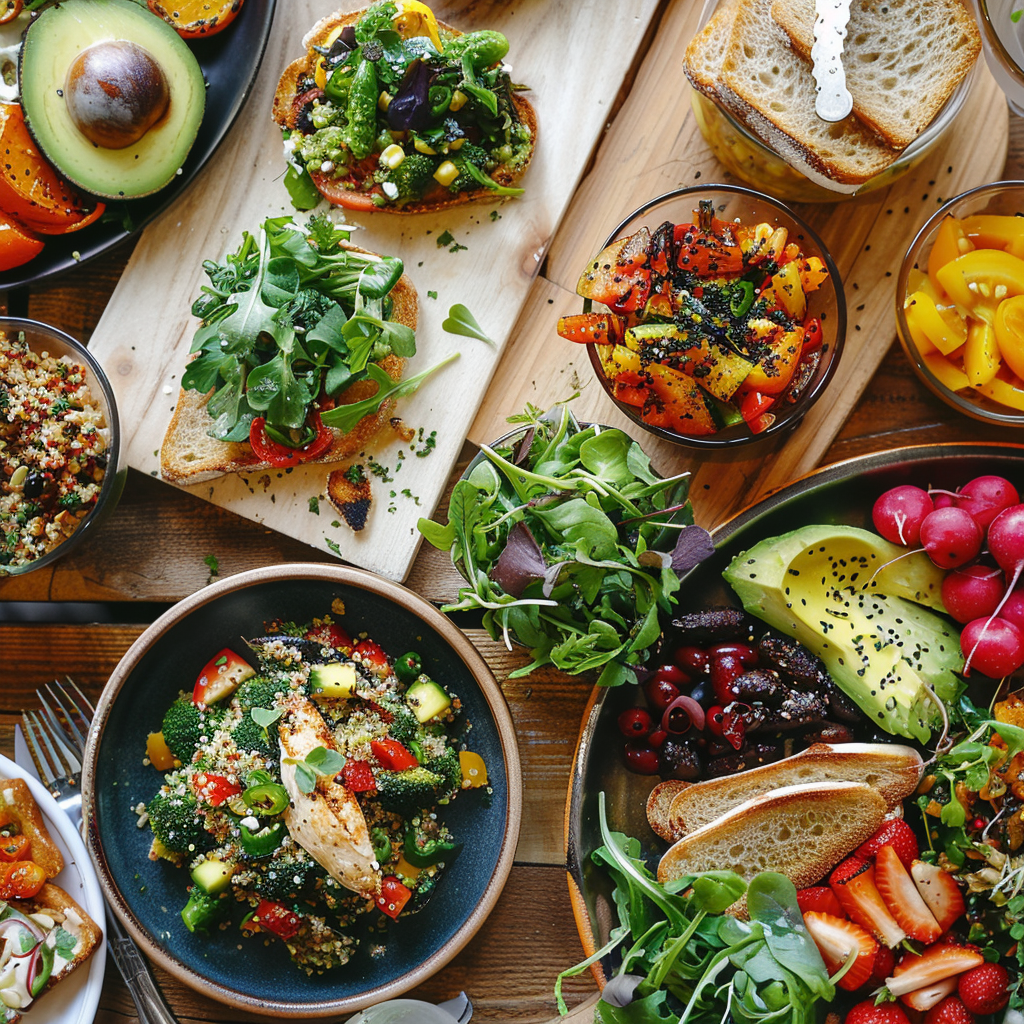1. What is a Plant-Based Diet?
A plant-based diet focuses on consuming foods primarily from plants—fruits, vegetables, legumes, grains, nuts, and seeds—while limiting animal products. The goal isn’t to eliminate meat, dairy, or eggs entirely but to prioritize plants in your meals.
Unique Insight: Plant-based diets are highly flexible. You can still enjoy your favorite meat-based dishes occasionally, but the emphasis is on making plant foods the main attraction on your plate.
Actionable Tip: Start by aiming for one plant-based meal per day or commit to “Meatless Mondays” to gradually shift toward more plant-based eating.
2. Health Benefits of a Plant-Based Diet
Switching to a more plant-based diet can offer numerous health benefits, even if you’re not fully vegan. Here’s how adding more plants to your diet can improve your overall well-being:
a. Lower Risk of Chronic Diseases
A diet rich in fruits, vegetables, whole grains, and legumes is linked to a reduced risk of chronic conditions like heart disease, diabetes, and certain cancers. Plants provide essential nutrients like fiber, vitamins, and antioxidants, which protect your body from inflammation and disease.
Pro Insight: Studies show that people who follow a predominantly plant-based diet tend to have lower cholesterol levels, reduced blood pressure, and improved heart health.
b. Better Digestion and Gut Health
Fiber is a crucial component of plant-based foods, and it plays a key role in maintaining good digestion. Fiber helps regulate bowel movements, promotes a healthy gut microbiome, and can even aid in weight management by keeping you fuller for longer.
Actionable Tip: Add more fiber-rich foods like beans, lentils, and leafy greens to your meals to support your digestion and overall gut health.
c. More Nutrient-Dense Meals
Plant-based diets are naturally packed with essential vitamins and minerals, such as potassium, magnesium, and folate. These nutrients are vital for energy production, brain function, and overall vitality.
Unique Insight: You don’t have to sacrifice protein when shifting to a plant-based diet. Foods like quinoa, tofu, and chickpeas are excellent sources of plant protein that can easily replace or complement meat in your meals.
3. Environmental Benefits of Eating More Plants
Reducing your consumption of animal products, even slightly, can have a significant positive impact on the environment. Livestock farming is a major contributor to greenhouse gas emissions, water usage, and deforestation, so eating more plants is one of the simplest ways to reduce your environmental footprint.
Actionable Tip: Swap out beef or pork for plant-based proteins like lentils or beans in one meal a day to help lower your carbon footprint.
Pro Insight: According to research, cutting back on animal products by just 25% can significantly reduce your personal environmental impact, making plant-based eating a powerful tool for sustainability.
4. Practical Ways to Add More Plants Without Going Fully Vegan
Going fully vegan might feel intimidating or restrictive, but there are plenty of ways to embrace plant-based eating while still enjoying animal products in moderation. Here’s how to make it work for you:
a. Make Simple Swaps
Start by swapping out animal products for plant-based alternatives. For example, try using almond or oat milk instead of dairy milk, or swap meat in a chili or stir-fry with tofu, beans, or tempeh.
Actionable Tip: Experiment with plant-based versions of your favorite meals. Try a veggie burger instead of a beef patty, or make a hearty lentil soup instead of chicken soup.
b. Follow a Flexitarian Approach
A flexitarian diet emphasizes plant-based foods but allows for occasional meat and dairy consumption. This flexible approach gives you the health and environmental benefits of plant-based eating without feeling like you have to give up your favorite foods completely.
Pro Insight: Flexitarianism is a great way to balance your desire to reduce meat while still enjoying it in moderation. You can decide how many meatless meals you want to include each week based on your preferences.
c. Explore Plant-Based Cuisines
Many global cuisines, like Mediterranean, Indian, and Thai, naturally incorporate a variety of plant-based dishes. Exploring these cuisines can help you discover new, flavorful ways to enjoy plant-based meals.
Actionable Tip: Try adding Mediterranean staples like hummus, falafel, and tabbouleh to your meals for a flavorful plant-based boost.
5. The Mental Benefits of a Plant-Based Diet
In addition to the physical health and environmental perks, plant-based diets can also positively impact your mental health. Eating nutrient-dense, whole foods can improve mood, reduce anxiety, and increase energy levels, all while promoting a balanced, sustainable lifestyle.
Unique Insight: Some studies suggest that diets high in fruits and vegetables are associated with lower levels of depression and anxiety. The antioxidants, vitamins, and minerals found in plants support brain health and mood regulation.
Conclusion: Embrace the Benefits of Plant-Based Eating Without Going Fully Vegan
You don’t have to go all-in on veganism to enjoy the benefits of a plant-based diet. By making small changes, like incorporating more plant-based meals, trying new plant proteins, and following a flexitarian approach, you can boost your health, reduce your environmental impact, and enjoy a varied and satisfying diet.
















